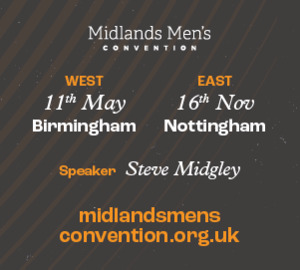Captured by terrorists
What would you do if you were kidnapped and held at gunpoint? Russell Stendal faced that experience.
Rebecca Davis

In 1959, at the age of four, Russell Stendal prayed for God to call his parents to be missionaries.
Within just a few years his whole family had moved from their home in Minneapolis, Minnesota and were living in Colombia as missionaries. When Russell was 27 years old, he was kidnapped by the Marxist guerrillas called the FARC. Formed in 1964, they wanted to overthrow the government and often kidnapped people for ransom. This is the story of what happened.
The revolutionaries took Russell to their secret camp hidden deep in the jungle. Here they tied him to a tree like a dog. Then they wrote a ransom demand. ‘Don’t think I have a lot of money’, Russell told them, ‘I don’t. I’m just a Christian missionary’.
‘Christian garbage’
‘I don’t believe all that Christian garbage about love’, said Nancy, the revolutionaries’ nurse, spitting on the ground. ‘You don’t believe it either. If you did, you wouldn’t have shot our comrade in the leg when we captured you’. She walked away.
‘I didn’t really want to hurt him’, Russell answered. ‘I just wanted to get away. Nevertheless, I told you I didn’t have a gun, and that was wrong. I shouldn’t have lied. Rather, I should have trusted God to protect me’. The revolutionaries lied all the time. He had admitted doing something wrong? The revolutionaries never admitted they did anything wrong. Russell looked around the camp. Almost all the kidnappers were young. Some looked like teenagers. And here he was seated on a rough wooden bench with a rope around his neck, tied to a tree. He thought of his wife and little girl. ‘Father in heaven’, he prayed, ‘aren’t you going to help me here?’
Days passed. Russell sweated in the heat, swatted mosquitoes, watched men clean their guns and listened to their Marxist lectures. He didn’t get much sleep at nights. He was desperate to get away. But somehow God seemed to ask, ‘What about your kidnappers? Don’t they need to be rescued?’
Writing and a typewriter
‘I’d like to write’, Russell announced one morning. ‘Can you give me a paper and pencil?’ ‘If you write a letter you can only write what we tell you’, the revolutionaries replied. ‘No’, said Russell. ‘I’m going to write a book.’
With a rope around his neck Russell began to write. He wrote about life and the people in the revolutionary camp. He wrote about his childhood when his missionary parents lived among the Kogi Indians of Columbia. He wrote about how he had learned to fly a plane. He wrote about the bad things he had done and about God. Before long, the revolutionaries started to gather round. They wanted to read each page as he wrote it. Then, somehow, one of them found him a typewriter and they let him type for several hours a day. Whenever they could they clustered around to read. Sometimes they laughed. Sometimes they went away deep in thought. Sometimes they argued.
Sowing bad, expecting good?
‘How can an educated man like you believe in God?’ Giovanni, one of the leaders raged. ‘The only reason religion was invented was so that rich people could keep poor people enslaved. But now Communism will soon liberate everyone!’ ‘You try to bring world peace through terrible crimes and terrorism’, Russell challenged him. ‘You kidnapped me, you might even kill me, when I haven’t done anything wrong? How can you sow injustice and expect to reap justice? How can you sow bad things and expect a good outcome?’ Laying awake in his hammock that night Russell prayed for his captors.
The ‘poisoned’ candy
Weeks passed. Russell’s family was trying to do a deal with the kidnappers. On one occasion they sent him a Bible, books and some candy. Russell decided on a trick. ‘Do you want to try some candy from America?’ he said to the revolutionaries as he munched on some. He broke a piece of red candy into several parts as Nancy and some of the young men gathered round. For a moment he watched them eat.
Then, suddenly, he jumped up. ‘I did it’ , he cried. ‘The red candy was poisoned, and you’ll all die in five minutes!’ The revolutionaries looked terrified. Their faces turned white. After a few moments Russell began to laugh. ‘I was just joking!’ he said. ‘Now you know what it feels like, to think you are going to die, don’t you?’ Some of them chuckled nervously. Some were angry. However, when the story came out of Russell’s typewriter other revolutionaries laughed until their sides ached. ‘He got you! He got you good!’ they said.
It was clear that the kidnappers were afraid to die. One day, one young man asked him what would happen if his family couldn’t pay the ransom. ‘Aren’t you afraid to die?’ he asked. Russell looked serious but he shook his head. ‘I know it would be uncomfortable’, he said, ‘But no, I’m not afraid.’ The young man turned away very thoughtful. Later when he had a chance he found Russell and whispered, ‘I wish I could be a Christian. But if I try to leave Communism they would kill me’.
Hopeless case?
More and more, the kidnappers began to enjoy Russell’s company. They even allowed him to read to them from the Psalms. And some revolutionaries began to question their orders. ‘Why do we have to kill so many innocent people?’ ‘Why do we want to take over the drug business when it is so bad?’ The weeks turned to months and Russell kept praying.
In private conversation, Giovanni broke down saying, ‘I want to get right with God but my case is hopeless. I’ve done too many terrible things’. ‘It’s never too late’, Russell encouraged him. ‘There’s no sin too great. The bigger the mess, the more grateful we’ll be for God’s forgiveness.’
But one man, Mariano, still despised Russell. ‘Why did Jesus have to die?’ he demanded one day. ‘If I were God and came down to earth, I wouldn’t let anyone nail me to a cross! An all-powerful God would never let that happen. This shows that you just made up this story!’
Russell paused and prayed. Then he said, ‘Jesus died because we’ve all been kidnapped.’ He looked around at the revolutionaries with their joyless faces. ‘We’ve been kidnapped by our own selfishness and pride. But Jesus came to die and pay the price for all our sins and break the power of sin and death. He died, but remember, he rose again, victorious over sin, death and hell.’ Mariano turned away without a word.
As time passed he began to be increasingly cruel to Russell. He took away the typewriter and smashed it. ‘I’ll have to shoot you while you’re asleep!’ he sneered. In response, Russell gave Mariano a gift from one of the packages his family sent. ‘You kidnapped me as an act of terrorism and to raise money for weapons’, Russell said, ‘But our merciful God allowed it to happen, because he loves you and wants me to tell you all about him.’
The fruit of captivity
At midnight on New Year’s Eve a group of the revolutionaries boisterously sang to him. Then one of them whispered, ‘We know that you don’t really work for our enemies’. ‘How?’ Russell asked. ‘Because you aren’t afraid of us,’ was the reply. The very next day, they told Russell ‘You’re going to be released!’ His brother had worked out a ransom deal and came with a boat to take him away.
For almost five months Russell had lived in this camp, and now he saw these men as friends. He shook hands with each of them and hugged them. Mariano who had hated him so deeply, began to weep. He grabbed Russell’s hand and held on to it. He choked out ‘Forgive me!’ ‘Don’t think about it again’, Russell answered. ‘Just remember what I’ve told you.’ As the boat sped away Russell prayed ‘They are in prison, Lord. Who will rescue them?’
After Russell was released he wrote a book, Rescue the Captors. Thousands of copies were given away all over the areas controlled by the revolutionaries. Many of them read it and eventually came to Christ. Some of them became pastors and evangelists. Six years later, Giovanni found Russell and apol-ogized to him on behalf of the whole revolutionary movement. ‘Everyone knows we made a big mistake’, he said.
This article is an edited extract from Lights In A Dark Place: true stories of God at work in Columbia, by Rebecca Davis, published by Christian Focus and is used with permission.


